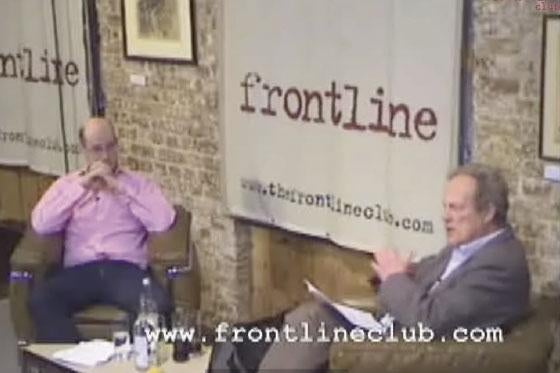
I could propose that lectures are the new rock and roll, but I would probably end up in Private Eye’s cliché corner. However such a cliché does encapsulate a new hunger driving audiences off their sofas and into their local halls and conference venues.
And this appetite for a good lecture is much broader than the annual Hay-on-Wye Festival, beloved of Britain’s intellectual elite. New lecture series are popping up all over the place.
I can’t confess to know why this sudden hunger has taken hold. I suspect a reaction to the dire state of television. The discerning public are sick of factual programmes that reduce every important subject to sensationalism and sex delivered in predigested mouthfuls by celebrities reading from autocues. People want to think, be challenged and be inspired. A great lecture provides an opportunity for all three.
Uplifting
Any journalist who has attended a good lecture by a major industry figure knows it can be an uplifting experience. For most practitioners, especially in the age of ‘churnalism”, our industry can seem a gruelling repetitive activity with little higher purpose.
Going along to see a ‘name’journalist talk about the best kinds of journalism – tales of tough frontline reporting, the dishonesty of politicians, successful investigations and emotionally literate writing – reminds us why we got into this business in the first place.
Anyone who has taught journalism at universities also knows how inspiring the experience can be for young journalists. But academics also know it is very hard to organise a coherent and successful series of lectures, not least because reporters often have to cry off at short notice.
The next best thing is to view good or even great lectures online. In my view, universities are going to make ever greater use of lectures and instructional videos, podcast on their intranets – known these days as VLEs (Virtual Learning Environments).
For a VLE research project, I made a video of one of my own lectures: ‘What is investigative journalism?’I have also posted it on my website. My curiosity piqued, I started looking at the way others approached the tricky business of delivering an engaging lecture. So I’ve spent a fair bit of time over the past months watching and listening to a wide range, and have compiled something of a beginner’s guide.
Common in US
In the United States, recording major lectures, speeches and talks are far more commonplace than in the UK. The best place to start is iTunes U (short for university). This is to be found on the iTunes store menu and opens a whole world.
The rather clever people at iTunes have signed up dozens of top US universities to put literally thousands of videocasts and podcasts online. Here you can find guest lectures by all the US elite reporters – Bob Woodward, Christiane Amanpour , Seymour Hersh, Judith Miller, Barbara Walters, Judy Pasternak and many more. Just put ‘journalism’into the iTunes U search engine and off you go. As yet, they have not really tied up with many UK universities, but that is sure to come.
The best UK site by far is the website of the Frontline Club, which records many of its diverse evenings and puts them online. For those who don’t know, the Frontline Club, near Paddington station in London, is for ‘frontline’reporters, but its success has made it a broader salon for serious journalism.
I’d advise starting with the talk by Robert Fisk from April this year, and a more modest performance by foreign correspondent Christina Lamb from last January, which is made all the more powerful by being understated. Also in January, there was one of America’s most respected reporters, Jon Lee Anderson of The New Yorker, talking to Allan Little about the new left-wing movement in Latin America.
Another useful site belongs to The Centre for Investigative Journalism (TCIJ), based at City University in London, where several excellent talks can be found online.
I should end by saying that you can find lectures by commentators all over the place. The most prolific has to be Christopher Hitchens, who appears not once in the iTunes catalogue, but three times. He also appears on many other sites, including the excellent Hay Festival podcasts.
One thing I would have liked to have seen on my internet travels is more contributions from journalists under the age of 50. Perhaps they are too busy blogging to give lectures. I’d be fascinated to hear from anyone who knows of any, or who has suggestions of their own to add.
Paul Lashmar is an investigative journalist and journalism educator. www.paullashmar.com or paul.lashmar1@btinternet.com
Email pged@pressgazette.co.uk to point out mistakes, provide story tips or send in a letter for publication on our "Letters Page" blog





